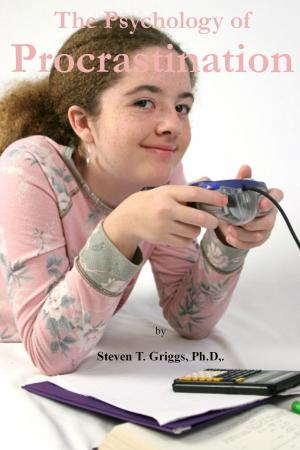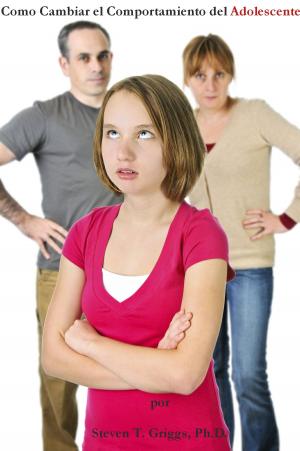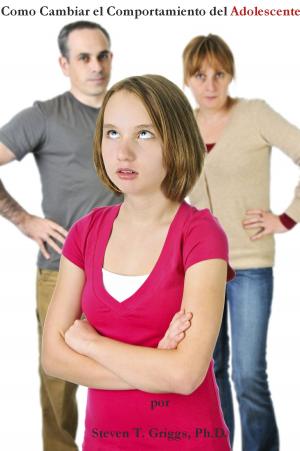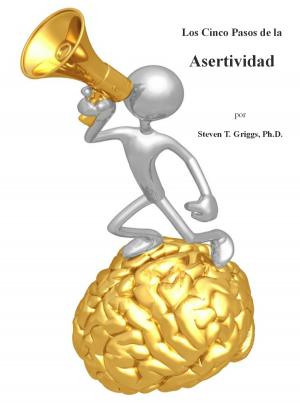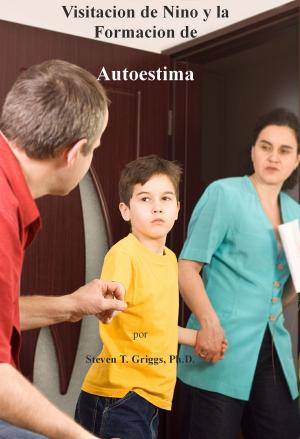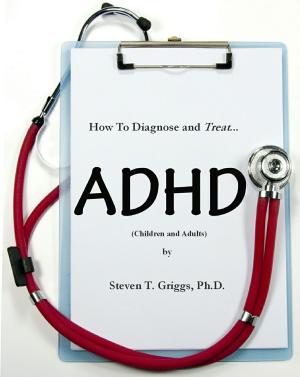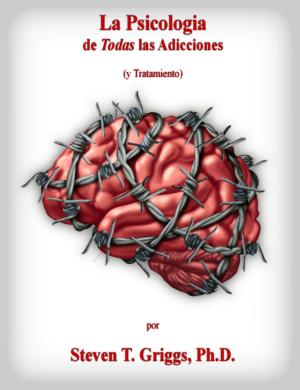Kids and Divorce
Nonfiction, Family & Relationships, Family Relationships, Divorce, Health & Well Being, Psychology, Child & Adolescent, Child Development| Author: | Steven T. Griggs, Ph.D. | ISBN: | 9781465752321 |
| Publisher: | Steven T. Griggs, Ph.D. | Publication: | January 22, 2012 |
| Imprint: | Smashwords Edition | Language: | English |
| Author: | Steven T. Griggs, Ph.D. |
| ISBN: | 9781465752321 |
| Publisher: | Steven T. Griggs, Ph.D. |
| Publication: | January 22, 2012 |
| Imprint: | Smashwords Edition |
| Language: | English |
This ebook discusses what not to do after the divorce, or put more positively, what to do to help your child(ren) cope and process this very big life-changing event. It focuses on the child’s experiences, and presents these to parents so parents know what not to do.
I start with a summary of some of the more common research findings. I don't get too technical or scholarly, but it is important to put my information in context. Next is a description of how children see divorce. (Most parents "get" more of their own experience, not the childs.') Here is a discussion of the seven things kids want, and the five feelings they need to express.
Next is a discussion of what parents might consider before the divorce. Some parents do a very good job of thinking about what to do before telling the kids. Here you will find the top ten things to do first...
What are the ways to "reach" kids? I go over specific communication techniques, especially the ones that work. What about rewards, bribes, manipulation? Parents usually resort to some version of these, often out of desperation or guilt. I write about how to avoid much of that. These are covered under "Vocabulary of Feelings," the "Four-To-One Rule," and the "Three Contingencies of Reinforcement."
Parents have to know about "acting out" and what it expresses. What does it mean? What is the child doing by behaving this way? How do parents de-code these behaviors? This is where the Vocabulary of Feelings earns high marks. What are the most common feelings children have during this time? I list seven.
Sometimes, kids are really thrown for a loop by divorce, no matter how sensitive the parents are. Worse, sometimes kids fall apart, which is more common when parents declare war on each other. I list the top ten major warning signs of childhood decompensation. If you see any of these signs, take your child to a licensed professional.
What are the three most destructive things a child believes about the divorce? Parents have to correct these right away, or else... What is the one finding from dozens of studies that almost single handedly explains why kids suffer in divorce? The research is clear and parents should address this above all else.
Parents should know about Constancy. This is one of the most powerful psychological priniciples that parents overlook. Without it, kids are lost. What is the most crucial time to attend to this?. There is one developmental time frame that requires special attention. If the divorce occurs during this two year period, the child is five times more likely to develop significant depression and/or an anxiety later.
How should parents handle "visitation?" This is such a strange word to kids, especially in the beginning, just after the divorce.
Then I introduce some techniques--things to do or say that make much of this manageable. Believe it or not, parents can succeed in all the above areas, even while living in separate households.
This brings up co-parenting. Have you and your "ex" considered what rules each of you will have pertaining to the child? How about rewards for good behaviors? It's important for the contingencies to be at least similar between the houses. I provide lots of tips.
What are the seven deadly sins committed by warring parents during visitation? These are huge "no-no's" if you want your child to have any peace of mind at all.
What do parents need to know if and when there arrives a stepparent? Thought things were challenging just after the divorce? Just wait...
And, what do parents do with their own feelings? Usually, we act them out on our "ex." This is understandable, but it is damaging to both parents and children. Lastly, two things are included that are not often discussed in this context. One is the death of a parent and the sequela experienced by the remaining family members. The other is the divorced parent's self-care, which is usually diminished.
This ebook discusses what not to do after the divorce, or put more positively, what to do to help your child(ren) cope and process this very big life-changing event. It focuses on the child’s experiences, and presents these to parents so parents know what not to do.
I start with a summary of some of the more common research findings. I don't get too technical or scholarly, but it is important to put my information in context. Next is a description of how children see divorce. (Most parents "get" more of their own experience, not the childs.') Here is a discussion of the seven things kids want, and the five feelings they need to express.
Next is a discussion of what parents might consider before the divorce. Some parents do a very good job of thinking about what to do before telling the kids. Here you will find the top ten things to do first...
What are the ways to "reach" kids? I go over specific communication techniques, especially the ones that work. What about rewards, bribes, manipulation? Parents usually resort to some version of these, often out of desperation or guilt. I write about how to avoid much of that. These are covered under "Vocabulary of Feelings," the "Four-To-One Rule," and the "Three Contingencies of Reinforcement."
Parents have to know about "acting out" and what it expresses. What does it mean? What is the child doing by behaving this way? How do parents de-code these behaviors? This is where the Vocabulary of Feelings earns high marks. What are the most common feelings children have during this time? I list seven.
Sometimes, kids are really thrown for a loop by divorce, no matter how sensitive the parents are. Worse, sometimes kids fall apart, which is more common when parents declare war on each other. I list the top ten major warning signs of childhood decompensation. If you see any of these signs, take your child to a licensed professional.
What are the three most destructive things a child believes about the divorce? Parents have to correct these right away, or else... What is the one finding from dozens of studies that almost single handedly explains why kids suffer in divorce? The research is clear and parents should address this above all else.
Parents should know about Constancy. This is one of the most powerful psychological priniciples that parents overlook. Without it, kids are lost. What is the most crucial time to attend to this?. There is one developmental time frame that requires special attention. If the divorce occurs during this two year period, the child is five times more likely to develop significant depression and/or an anxiety later.
How should parents handle "visitation?" This is such a strange word to kids, especially in the beginning, just after the divorce.
Then I introduce some techniques--things to do or say that make much of this manageable. Believe it or not, parents can succeed in all the above areas, even while living in separate households.
This brings up co-parenting. Have you and your "ex" considered what rules each of you will have pertaining to the child? How about rewards for good behaviors? It's important for the contingencies to be at least similar between the houses. I provide lots of tips.
What are the seven deadly sins committed by warring parents during visitation? These are huge "no-no's" if you want your child to have any peace of mind at all.
What do parents need to know if and when there arrives a stepparent? Thought things were challenging just after the divorce? Just wait...
And, what do parents do with their own feelings? Usually, we act them out on our "ex." This is understandable, but it is damaging to both parents and children. Lastly, two things are included that are not often discussed in this context. One is the death of a parent and the sequela experienced by the remaining family members. The other is the divorced parent's self-care, which is usually diminished.


